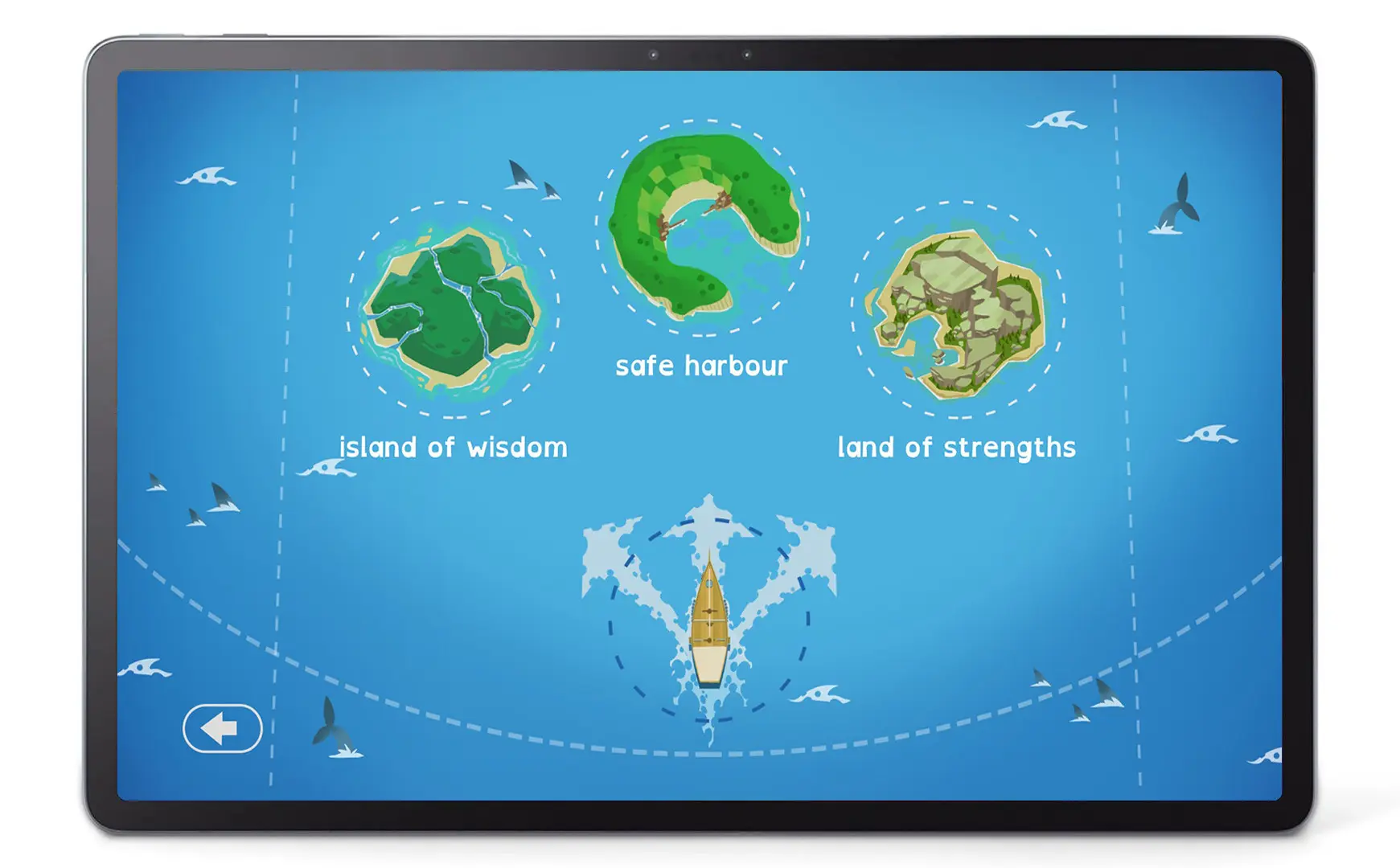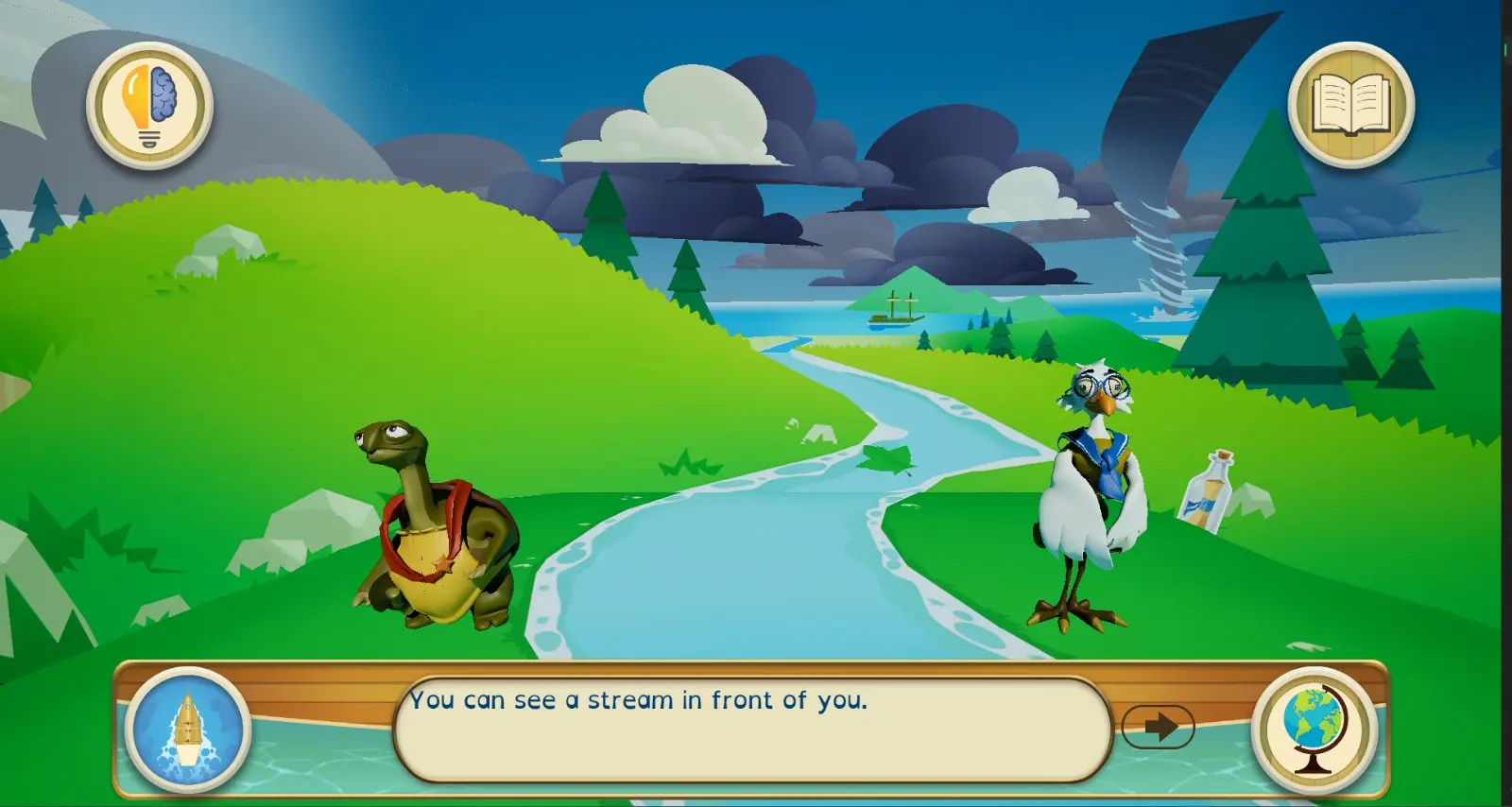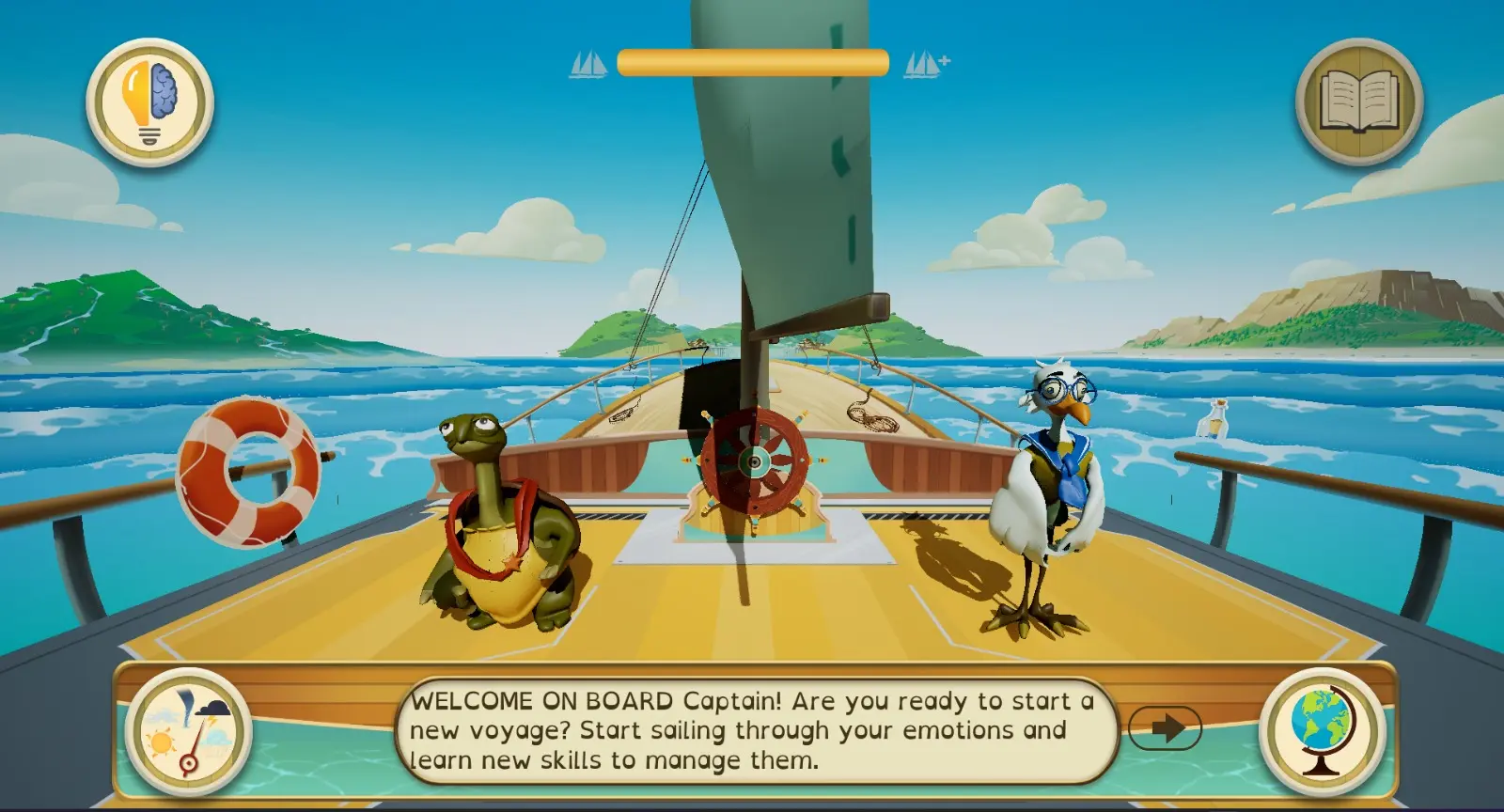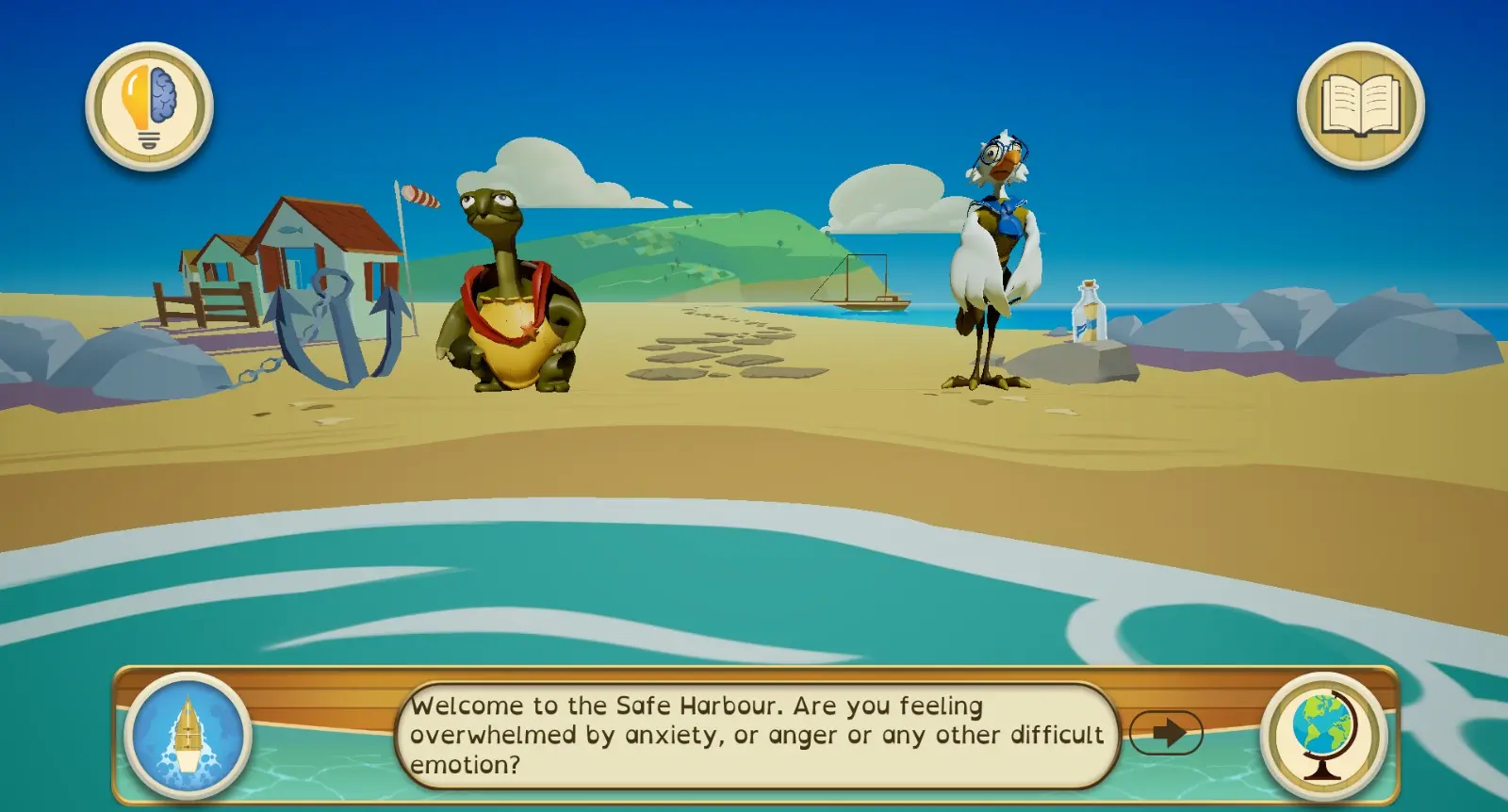Mind Captain App:
an Erasmus+ Youth Wellbeing Project
The 2022-2024 edition of the "Erasmus+ Youth Wellbeing" project saw BECOME participate within a consortium consisting of Università Cattolica del Sacro Cuore di Milano, Anatta Foundation, Lidzalibas Platforma, Vice Versa, Ambitia Institute, Institute IVIZ, National University of Ireland Galway, Kamaleonte ASD, CreACTive, and Euroaccion. The Erasmus+ project aims to protect and promote the mental health and well-being of young people through indirect initiatives — providing youth workers and youth organizations with the necessary skills to address these issues — and direct interventions aimed at young people. Unlike previous editions focused on strengthening contexts and subjects dealing with youth and their well-being, the 2022-2024 project proposed the design and development of a mobile app capable of effectively and timely responding to the growing need for psychological support in this population.

The Context
The Erasmus+ project is guided by the European Youth Goals, which identify mental health and adolescent well-being as two central dimensions for young people's lives and key areas for initiatives and activities organized by youth workers. Adolescence and young adulthood are life stages marked by profound changes and transitions affecting self-perception, self-management, school, family, relationships, which could lead to psychological difficulties - even mental disorders - and destructive behaviors if overly stressful and challenging to manage. In recent years, these normative developmental challenges have been further burdened by the Covid-19 pandemic and the measures adopted to counter it, significantly worsening the mental health of young people (ages 15-24) with potential long-term consequences. Additionally, recent geopolitical instability and prolonged economic and social uncertainty have compounded these issues. In this context, it is essential that youth workers and youth organizations, who are daily engaged in working with young people, are equipped with effective approaches, methodologies, and tools to help youth learn to take care of their mental health and well-being. Furthermore, there is an increasing need to design evidence-based interventions tailored to the needs of young people, aimed not only at treatment but also at the prevention of mental disorders. Given the widespread use of smartphones among this demographic and the potential of smartphone-based interventions in promoting and protecting young people&aposs mental health and well-being, the Erasmus+ Youth Wellbeing consortium has attempted to address this necessities by developing a "well-being app" that can respond to the need for timely and effective mental support for young people.
The Project
Within the Erasmus+ Youth Wellbeing project, BECOME collaborated on the creation of the first evidence-based and practice-informed mobile app aimed at supporting the development of essential social and emotional skills in young people to ensure good psychological resilience, optimal social functioning, and adequate self-help psychological abilities. Additionally, guidelines have been developed to support youth workers in mentoring and online support activities for young people using the app. The app aims to achieve three main goals: 1) increase awareness and understanding of the user's emotions; 2) learn new strategies to manage difficult emotions and alleviate anxiety and stress; 3) recognize and enhance strengths. The developed tool is based on a solid theoretical foundation integrating Socio-Emotional Learning, Acceptance and Commitment Training, Positive Psychology, and Compassion Focused Therapy, with a unique metaphorical storytelling and a Human-Centered Design approach where design and development choices are organized around the needs and experience of the end user. The project involved 150 young people aged 16 to 25 from different European countries—such as Italy, the Netherlands, Slovenia, and North Macedonia—and 25 youth workers who were constantly consulted in national and international focus groups to build a product that is both top-down — informed by literature — and bottom-up — built and refined based on participants' feedback.
The MindCaptain App
The app "MindCaptain", developed by BECOME, takes the user on a metaphorical sea journey. The journey begins on the deck of a ship where the user is welcomed by two travel companions—a wise turtle and a curious seagull—and continues through various sections of the app where the user can acquire and consolidate crucial emotional skills for their personal growth: recognizing and understanding one's emotional state; managing emotional crises; accepting internal states and viewing them from new perspectives; knowing and enhancing one's character strengths.
Emotional Compass
"Emotional Compass" offers the user a detailed description of some fundamental émotions — such as happiness, fear, sadness, anger, and indifférence — in their various nuances, specifying characteristics, manifestations, and psychological functions. By selecting the option that best describes their current emotional state, the user can delve deeper into its characteristics, learning to recognize, understand, and describe it. Each emotion is metaphorically associated with a different weather condition of varying intensity.
This function, based on the principles of Emotional Intelligence and Emotional Literacy, allows the user to work on the perception and recognition of émotions — along with related feelings, thoughts, and behaviors —, understand their psychological function, and learn to observe and accept them without repressing them. It also helps users acquire more effective terms to define and describe the characteristics of emotions, expanding their emotional vocabulary.
Destinations: Island of Wisdom, Safe Harbour, Land of Strengths
The user's emotional journey, organized around the emotion selected through the Emotional Compass, can proceed to three destinations: Island of Wisdom, Safe Harbour, and Land of Strengths.
Landing on Island of Wisdom, the user is guided by the two travel companions through two emotional regulation exercises, one aimed at fostering emotion acceptance and the other focused on emotional defusion: the acceptance exercise helps the user allow difficult thoughts and feelings to occur within themselves without ignoring or trying to modify them; the defusion technique helps the user let emotions flow by observing them from a distance to gain new perspectives and reduce their intensity. These exercises also enhance emotional awareness, which is a prerequisite for emotional regulation.
Another destination — quickly accessible by selecting the life buoy on the home screen — is the Safe Harbour, a safe place where the user is helped to regulate emotions they experience as overwhelming. This is done through two breathing exercises: mindful breathing and box breathing. The intervention, based on the principles of Stress Reduction and Self-Soothing, strengthens emotional regulation capabilities.
Finally, the user can reach the Land of Strengths, a place for mental and emotional strenghten. Here, there is a tree full of colorful gems, each associated with a positive dimension of character — such as courage, empathy, awe, humanity, hope, temperance, and optimism. By selecting each gem, the user can learn effective strategies to strengthen specific aspects of their personality. These activities draw from Positive Psychology, Strengths-Based Training, and Self-Compassion, helping to acquire or reinforce character qualities.
Wheel
By selecting the ship's wheel, the user can become aware of the values central to them and the role they play in their life. This function, based on the principles of Acceptance and Commitment Training, helps the user clarify their core values, motivating an effort to stay with their difficult emotions to achieve goals consistent with their value system.
Logbook
Reflections, thoughts, and emotions can be recorded in the Logbook. This section, guided by the principles of Emotional Awareness and Emotion Regulation, allows the user to reflect on the context of each recorded emotion and the coping strategies adopted, promoting self-empowerment.
Science
Finally, the Science button allows the user to briefly delve into the scientific rationale underlying each of the functions and activities described.


